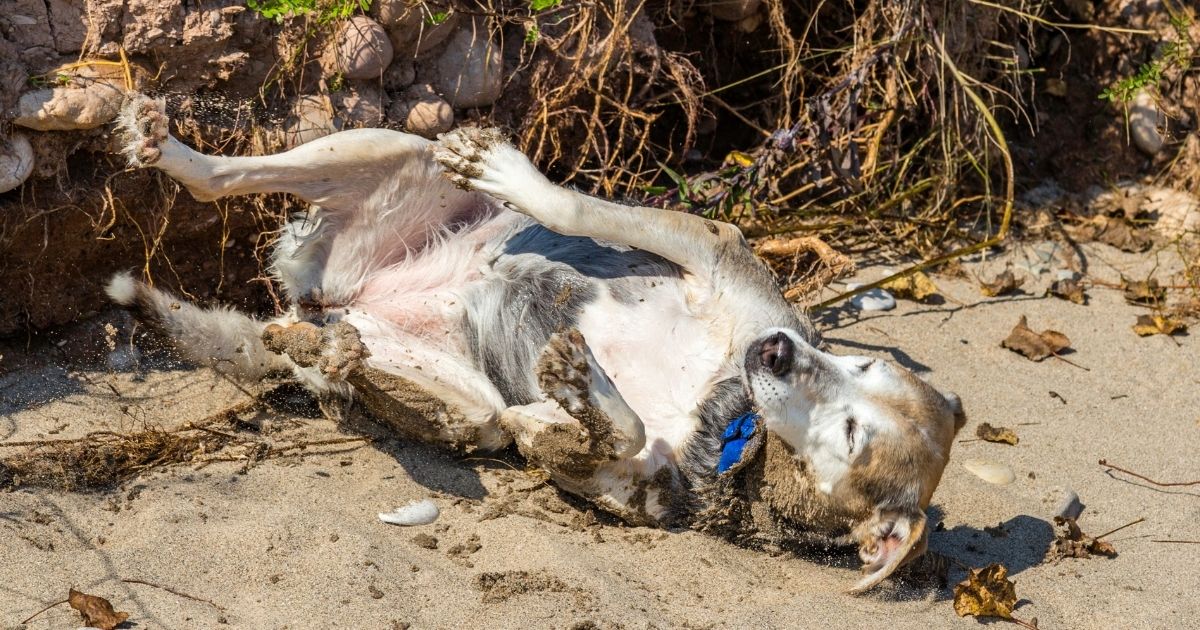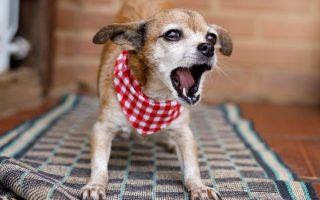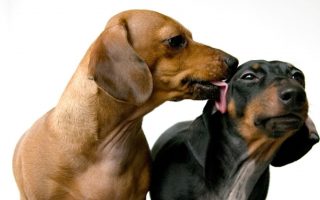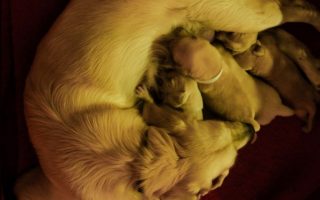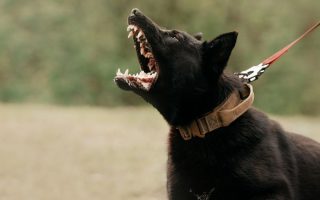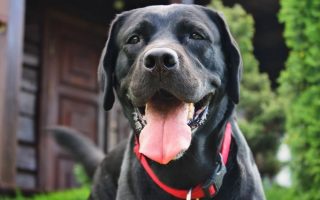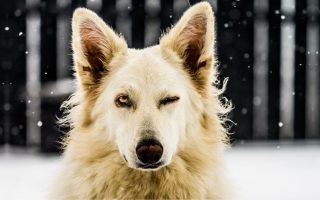You may have sometimes noticed your Fido’s habit of rolling in what you observe to be the remains of an animal and you’re asking: why do dogs roll in dead animals?
This behavior you observe isn’t just limited to dead things but extends to poops, worms, and even the slightest hint of anything that oozes revulsion and nausea.
You may wonder, why is an adorable and beautiful creature as Fido attracted to such abhorrence?
Well, follow along as we unravel the science behind intricacies that trail the attachment between dogs and carcasses, poops, goos, dead things—everything that disgusts you.
Why Do Dogs Roll In Dead Animals?
It defies logic and every bit of reason for beautiful and intelligent creatures as dogs to be attracted to something disgusting such as dead things.
This has thus led dog owners to continually ask over the years, “why do dogs roll in dead things?”
Canine behaviorists have projected several reasons why such behavior is expected in dogs.
Explained in detail are some of the reasons why dogs roll in dead animals.
1. Inherited from wolf ancestors
For those familiar with primary canine genetic ancestry, it would come as no surprise that dogs are descendants of wolves.
Dogs have been referred to as domesticated wolves. Thus it is not uncommon for dogs such as the Siberian Husky to have a striking resemblance to wolves.
Dogs’ ancestry to wolves does not only manifest in their genes but also behaviors.
And one of such behaviors, yes, you guessed right, is dogs rolling in dead things.
This behavior is known as ‘scent rolling,’ typically seen in wolves who engage in it to mask their scent, thereby making it easier to hunt prey.
Your pooch most likely rolls in dead things to mask its scent, a behavior that traces to its ancestors.
2. Your dog is communicating with other dogs
Aside from rolling in dead things to mask their scent, wolves move dead things to communicate to pack mates about the food available for scavenging.
Similarly, your dogs most likely roll in dead things to communicate to other dogs, but in their case, not to scavenge, but rather that it has found something interesting.
This is done because your dog is aware that other dogs are attracted to such smells, which may show.
3. They are attracted to such a smell
As revealed by Texas veterinarian and DogLab consultant Sara Ochoa, DVM, dogs are generally attracted to vile and disgusting smells such as poops and dead things.
You may wonder why your dog would be attracted to foul-smelling things rather than pleasant smelling shampoos?
Well, it is just a matter of nature and instincts as dogs use foul smells as a means of communication.
Hence being attracted to such smell has to be with either sending a message or decoding one.
4. Territory Marking
Dogs are quick to mark their territory as one of the most territorial domesticated animals; they communicate to other pooches, not encroach.
They do so in several ways, but the most common and effective is marking their territory with their smell.
While some dogs do so by urinating in the designated region is seen as the most effective, transferring their scent does the same job.
Dogs’ scents are generated under the paws and the ears, and as a result, when dogs transfer their scent, they scratch with their paws and rub their faces.
So when your dogs roll in dead animals, it signals to other dogs that the territory is marked and belongs to it.
5. Cry for attention
While there are several reasons why dogs roll in dead things, the fact that doing so may be a sign of unemotional distress cannot be dismissed.
Dogs enjoy attention from their owners; in fact, they are eager to please their owners as they cherish this attention.
If they are starved of such attention engaging in behavior such as rolling in dead things is a sign of being stressed or lonely.
If this behavior extends consistently for a duration, actions should be taken to prevent such.
What Can I do if my Dog Rolls in a Dead Animal?
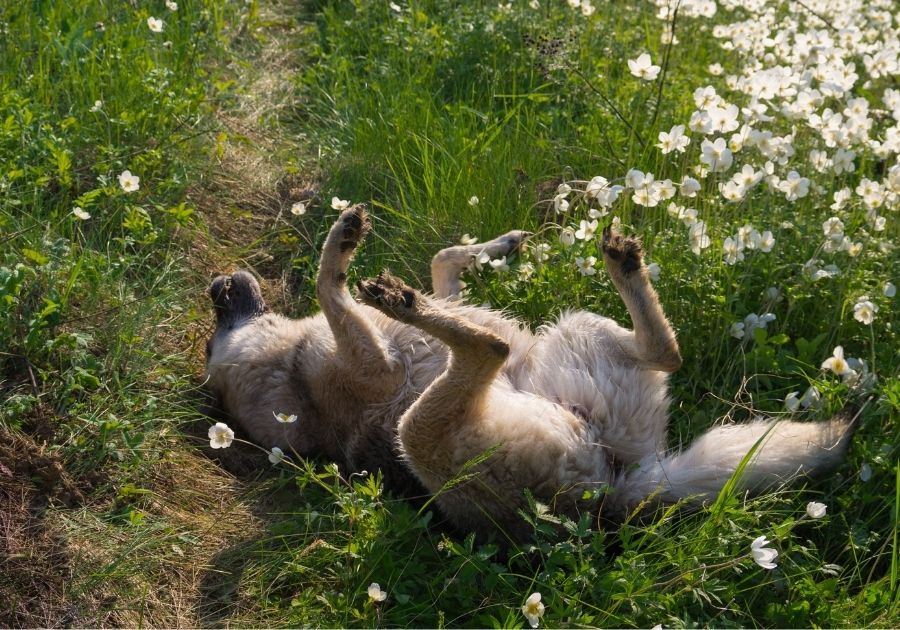
Whichever theory you seem to believe to be why you think your dog rolls in dead animals, one thing is sure; you want an end to this behavior.
But before that, here are actions to be taken immediately after your dog rolls in dead stuff.
1. Brush thoroughly
While your immediate concern is getting your dog rid of the foul smell, it is important to brush your dog before bathing.
Brushing first using a brush that suits your dog’s fur will eliminate any foul-smelling debris or particles, stickers on your dog’s coat.
2. Shampoo
The most effective way of getting the foul smell off your dog is by washing it with shampoo.
A degreasing dog-friendly shampoo will do the trick. Ensure the shampoo sits on your pooch fur for a considerable amount of time.
Avoid using fragrance on your dog while using shampoo as it makes your mutt uncomfortable.
If you are not satisfied after leaving the shampoo after a considerable period, it is okay to reapply.
3. Rinsing
Rinsing is the most important part of eliminating nasty smells from your mutts. Rinse the foamy shampoo off your dog thoroughly.
It is recommended you rinse your dog’s coats thoroughly to the point where you can hear a squeak.
How Can I Prevent My Dog from Rolling in Dead Things, Animals & Poops?
While dogs rolling in dead things is inherent and something they have a close affinity for, there are ways to prevent them from engaging in such behavior.
Being one of the most intelligent creatures on earth, consistent training and applying the highlighted steps below will prevent your dogs from rolling in dead things.
1. Name Calling
One beautiful quality about pooches is their ability to abruptly respond whenever they hear their names.
The command to attention is swifter when their owners call their names.
When dogs are trained to run to their owners when they hear their names, that can prevent dogs from rolling in dead things.
When you notice your dog is about to roll in dead animals or poops, do well to call its name.
This only works if the dog has been trained to run to its owner when its name is called.
2. Recall
Verbal commands are one of the most effective ways to instruct dogs on what to do and not to do.
Just like name-calling, when dogs are trained to carry out specific actions when certain words are called out, they would quickly respond.
Monosyllabic instructions such as “here,” “stop,” “heel,” works best.
When you train your dogs to respond to these instructions, it can prevent them from rolling in dead stuff.
3. Vigilance
Pet parents have a primary responsibility to care for their pets.
Thus if you notice a path often filled with dead things or poops, responsible owners will do well not to walk their dogs through such areas.
Also, owners should be vigilant to every debris and object in the paths of their dogs during dog walking.
Such vigilance will keep them away from this behavior long before your dogs sight them.
4. Engage your dogs in mentally and physically stimulating activities
Any dog deprived of physically or mentally stimulating activities will most likely engage in destructive and other weird behaviors that are inherent.
Hence to prevent that, ensuring your dog has its fair share of mentally and physically rewarding activities will make your dog less attracted to dead things or poops.
Why do dogs roll in poop and dead animals?
Animal behaviorists have several theories as to why dogs roll in poos and dead things.
Dogs are firmly attached to such a smell, and thus, will roll in them to communicate to other dogs that they have found something interesting.
Like their wolves ancestors, dogs roll in pops and dead animals to mask the scent, known as scent marking. However, this behavior could also signify emotional distress.
How long does a dead dog smell?
A dead dog’s smell is mainly dependent on the dog’s size and the environmental condition of the surrounding area.
Usually, a dead dog will smell until its carcass dries up. It can last from a week to months.
Why does my dog smell like death?
An awful smell is most likely a result of the fact that a foreign object is trapped in your dog’s mouth.
Over time, as this foreign object collects bacteria, your dog begins to smell.
Why do dogs roll on the ground?
Rolling on the ground is a survival instinct that dogs carry out to mask their scent.
They do this to protect themselves from dangers in the wild or to bring out scents they find appealing.
Dogs sometimes roll on the ground to relieve itches.
Why does my dog smell like vomit?
As a result of inflammation which arises from hormonal imbalances, food allergies or seasonal allergies, bacteria, fungus, and yeast overgrowths, excessive oil may be secreted on your dog’s skin, leading to a musty odor that smells like vomit.
Why does my dog still stink after a bath?
The root cause of this is primarily a result of irregularities in the function of skin, anal, or ear glands. Allergies and infections can compound this.
Conclusion
Every dog’s owner’s dream is to have healthy pets with little destructive or damaging behaviors.
However, much stands in the way of this goal, such as your pooch rolling in dead things.
While applications of the steps in this article will help prevent your dog from rolling in dead animals, poops, and other disgusting things, remember this action is intuitive.
To curb this behavior, consistent application of all that has been explained in this article will prove helpful.
References:

